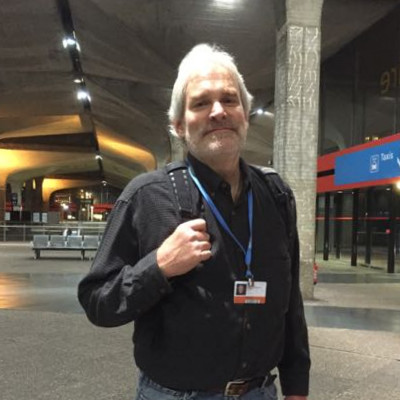
The boom in solar energy in the U.S. is due in large part to innovative financing, putting solar within reach of almost any business or homeowner with a roof, for little more than their signature. But for nonprofits it's a different story.
Traditional banks and financial institutions shy away from lending to 501c3 nonprofit organizations who are dependent upon charitable giving because they see it as an unreliable source of revenue. "We shouldn't penalize nonprofits for being nonprofits," says Lee Barken, founder and CCO (chief community officer) for CollectiveSun, a firm specializing in solar power financing for nonprofits, a deeply underserved market in need of a solar power financing solution.
With years of experience as a CPA and LEED-AP in renewable energy project finance, Barken saw day-in and day-out the gap that did, in fact, penalize nonprofits interested in going solar. With no tax liability, nonprofits are unable to reap the tax benefits of solar power projects available to homeowners and for-profit corporations. "Solar should be accessible by everybody trying to expand the market and include community participation," says Barken.
The problem with the self-service island
Unable to secure a traditional loan or 20-year Power Purchase Agreement (PPA) financing arrangement, Barken explains that too many nonprofits try to "roll their own" solution. Often this leads only to frustration.
"There are a lot of nonprofits struggling, that don't know about us and are trying to figure it out on their own" says Barken, "Instead of spending a lot of money on attorneys and accountants, we could probably help."
It isn't impossible for nonprofits to go solar on their own, devising their own methods and using their own limited resources. It's just prohibitively difficult, expensive and doesn't leverage community support and involvement, a key asset for any nonprofit.
CollectiveSun provides a much easier, lower-cost path to solar power, one that saves the nonprofit money while engaging community support.
"Part of the huge benefit we can offer," says Barken, "is that our structure offers a way to monetize tax benefits. But more importantly we can do it in a way that allows community participation as a promissory note. We use a simple debt arrangement."
Solar financing for nonprofits - how it works
"If you really want to serve the nonprofit, you give them a pathway to ownership."
The CollectiveSun approach involves two simultaneous transactions: First is the promissory note between CollectiveSun and investors to raise funds for the solar project. Second is the PPA between CollectiveSun and the nonprofit. After CollectiveSun raises project costs from investors, funds are then handed off to the solar installer chosen by the nonprofit. The PPA payments are used to make the annual principal and interest payments back to investors.
Using a community-based affinity investment platform, CollectiveSun offers nonprofits a low-cost, 10-year PPA, followed by a purchase option that is paid in equal monthly installments over four years. Tax benefits are passed through to the nonprofit in the form of lower cost power, and the short-term PPA with purchase option gives nonprofits a clear path to ownership.
As an investment, it isn't risk-free. Barken explains that CollectiveSun is very upfront with investors - if the nonprofit defaults on a PPA payment, no payment is made to investors. Generally speaking, investors interested in backing a particular nonprofit are already engaged in the community and much more risk-tolerant with the investment vehicle than "a typical risk committee at a bank."
Not just another brick in the wall
The challenge for nonprofits, apart from pursuing their particular mission, is fundraising. For any nonprofit wishing to go solar, this creates a conundrum: Do we just go out to our community and ask for another donation to finance solar power? Is it the best use of our community's good will, or is there a better option? CollectiveSun is that better option, drawing the best elements of solar financing for both investor and nonprofit.
By providing a return on their investment dollars, nonprofits aren't asking for a handout from their community as they go solar. It's real return on the dollar and not "just another donor's name on a brick." The nonprofit is able to share in the benefits of solar, with a clear path to ownership and reduced energy costs.
Nonprofits serve society in countless ways. They educate, heal, and comfort the vulnerable and less fortunate in our communities. Yet too often they struggle to share in the promise of the new energy economy. CollectiveSun's mission is to change that equation.
CollectiveSun currently operates only in California, but it is looking to expand as more nonprofits and local communities throughout the United States seek to share in this win-win community investment platform for low-cost solar power.
"This is an investment in my local community that hits all three P's: People, Planet, and Profits!" - Ellen K

Tom is the founder, editor, and publisher of GlobalWarmingisReal.com and the TDS Environmental Media Network. He has been a contributor for Triple Pundit since 2007. Tom has also written for Slate, Earth911, the Pepsico Foundation, Cleantechnia, Planetsave, and many other sustainability-focused publications. He is a member of the Society of Environmental Journalists














